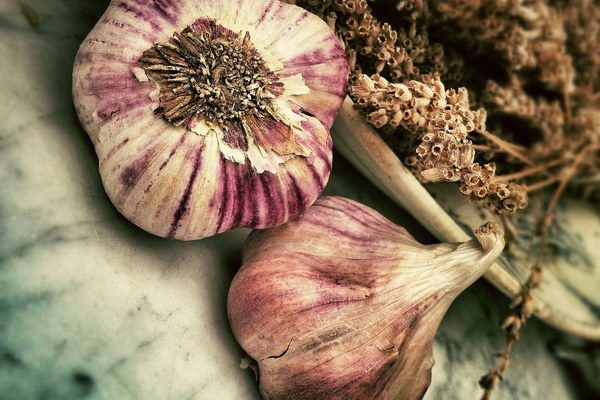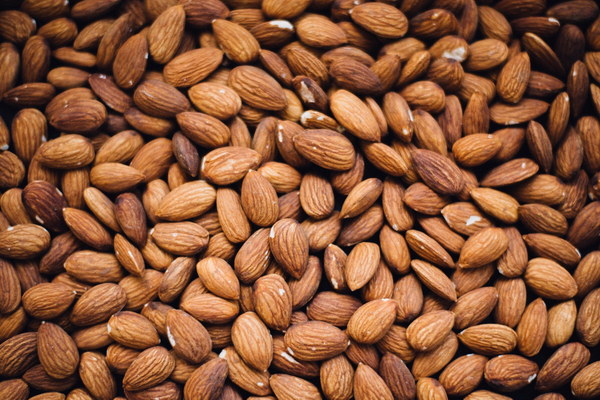Gastric Qi Deficiency How Yangu Shu Granules Offer Relief and Healing
Gastric Qi Deficiency, a common condition in Traditional Chinese Medicine (TCM), is characterized by a lack of vital energy in the stomach, leading to symptoms such as bloating, nausea, and a weak appetite. One of the most effective treatments for this condition is the use of Yangu Shu Granules, a herbal remedy known for its soothing and replenishing properties. This article explores how Yangu Shu Granules can help alleviate the symptoms of gastric Qi Deficiency and promote overall stomach health.
Yangu Shu Granules are a traditional Chinese herbal formula that has been used for centuries to treat various digestive disorders. The granules are made from a combination of natural ingredients, including:
1. Codonopsis pilosula: Also known as Dangshen, this herb is known for its ability to boost the immune system and enhance energy levels.
2. Atractylodes macrocephala: Known as Bai-Zhu, this herb helps to strengthen the spleen and stomach, promoting digestion and preventing the accumulation of dampness.
3. Cinnamon: This spice has warming properties that can help alleviate coldness in the stomach and improve appetite.
4. Licorice root: Known as Gancao, licorice root helps to harmonize the formula and reduce side effects from other herbs.
The combination of these ingredients makes Yangu Shu Granules a powerful remedy for gastric Qi Deficiency. Here's how the granules work to alleviate the symptoms of this condition:
1. Boosting Stomach Energy: Codonopsis pilosula (Dangshen) is the main herb in Yangu Shu Granules, and it plays a crucial role in replenishing stomach energy. By doing so, it helps to alleviate symptoms such as bloating, nausea, and a weak appetite.
2. Improving Digestion: Atractylodes macrocephala (Bai-Zhu) helps to strengthen the spleen and stomach, which in turn promotes digestion. This can help reduce symptoms such as bloating, abdominal pain, and constipation.
3. Relieving Coldness: Cinnamon has warming properties that can help alleviate the coldness in the stomach, which is a common symptom of gastric Qi Deficiency. By warming the stomach, cinnamon can improve appetite and reduce nausea.
4. Harmonizing the Body: Licorice root (Gancao) helps to harmonize the formula and reduce any potential side effects from other herbs. This ensures that the body can absorb the benefits of Yangu Shu Granules without any unwanted side effects.
To use Yangu Shu Granules for gastric Qi Deficiency, follow the instructions provided by your healthcare provider or the product label. Typically, the recommended dosage is 3-6 grams of granules, taken twice daily with warm water.
It is important to note that while Yangu Shu Granules can be a beneficial treatment for gastric Qi Deficiency, they may not work for everyone. If you have severe symptoms or if your condition does not improve after taking the granules, it is essential to consult with a healthcare professional for further evaluation and treatment.
In addition to using Yangu Shu Granules, there are other lifestyle and dietary adjustments that can help alleviate the symptoms of gastric Qi Deficiency:
1. Eat Small, Frequent Meals: Eating smaller, more frequent meals can help reduce the burden on your stomach and improve digestion.
2. Avoid Cold Foods and Drinks: Cold foods and drinks can exacerbate the symptoms of gastric Qi Deficiency, so it's best to avoid them.

3. Reduce Stress: Stress can contribute to the development of gastric Qi Deficiency, so it's important to find ways to manage stress, such as through exercise, meditation, or hobbies.
4. Exercise Regularly: Regular exercise can help improve digestion and reduce symptoms of gastric Qi Deficiency.
In conclusion, Yangu Shu Granules are an effective treatment for gastric Qi Deficiency, offering relief from symptoms such as bloating, nausea, and a weak appetite. By replenishing stomach energy, improving digestion, and reducing coldness, these granules can promote overall stomach health. However, it is essential to consult with a healthcare professional for proper diagnosis and treatment, and to make lifestyle and dietary adjustments as needed.









